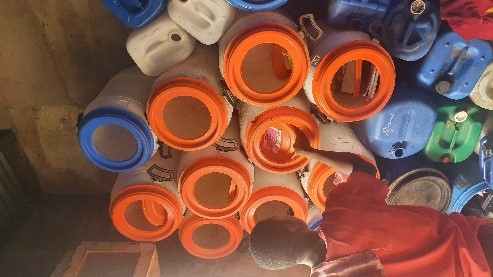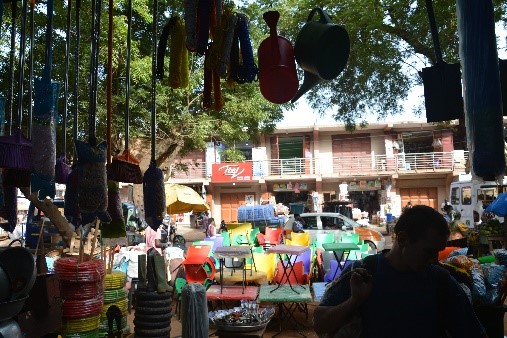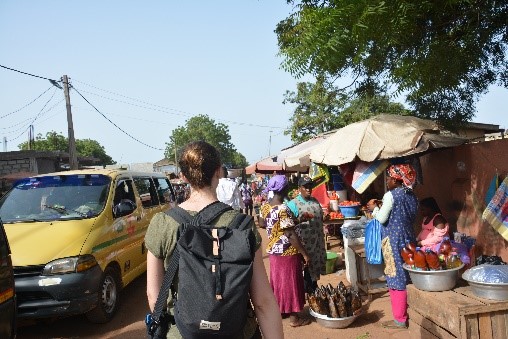

RAIN: Preparation for the construction of the gravity-driven filtration system in Ghana
At the end of April 2022, a team from the Ruhr-University of Bochum (RUB) arrived in Ghana to set-up a small-scale low-tech filter system to test its performance under natural conditions. The filtration-system is evaluated as a low-tech technique for providing safe irrigation water to small-holder farmers in peri-urban areas who use surface water, that is often contaminated.

Barrels at a local market in Accra. © Sophie Krüger
The team's first tasks included finding a suitable test site and purchasing materials for the construction of the filter pilot plant. Besides some tools and fittings brought from Germany, materials such as pipes, small components, filter and storage tanks were obtained from street markets in Accra. The use of locally available materials for the construction of the filter system is in line with the low-tech and low-budget approach, which makes the system more interesting for local users.

Market shop in Accra. © Ronja Voß
Together with the Ghanaian partners from the University of Ghana (UG) and the Accra Sewage Improvement Pro-ject (ASIP), a suitable test site was found and all preparation were made to start the construction and assembly of the pilot plant for gravity filtration.

Shopping of materials for plant construction. © Ronja Voß
Another German project partner, Manotura, joined the team a week later to set up an irrigation system to be coupled with the filtration system. The coupled gravity-driven filtration-irrigation system is part of the second work package (WP 2): Sustainable Technologies and Services for Adaptation to Climate Change in Flood- and Drought-Endangered Settlement Areas in Ghana.
CONTACT
Sophie Krüger, M.Sc.
+49 (0) 234 32 - 27056 / franziska.krueger@ruhr-uni-bochum.de
Prof. Dr.-Ing. habil. Marc Wichern
+49 (0) 234 32 – 275891 / siwawi@ruhr-uni-bochum.de
Dr.-Ing. Manfred Lübken
+49 (0) 234 32 – 23114 / manfred.luebken@ruhr-uni-bochum.de
